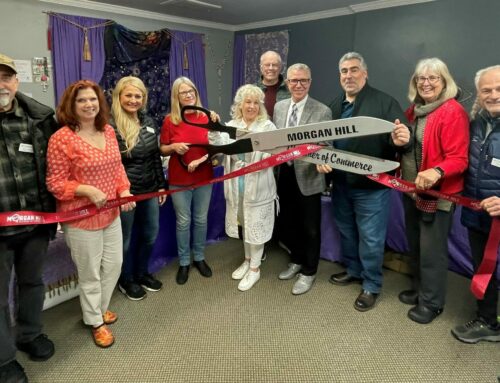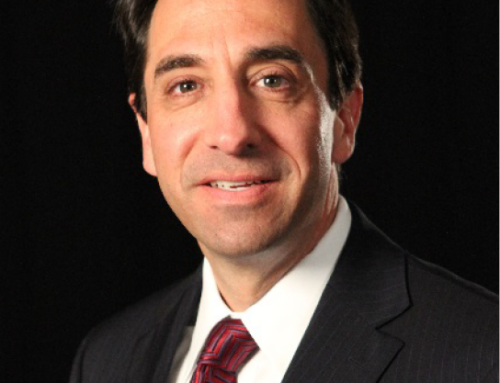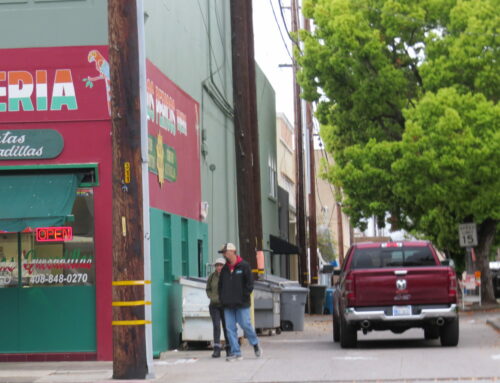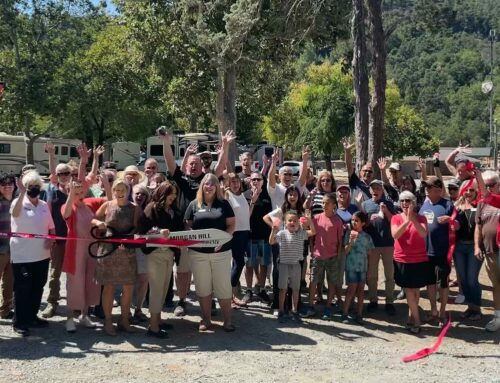DVDs can help families to heal
Published in the December 10-23, 2014 issue of Morgan Hill Life
By Marty Cheek

Photo courtesy Bailey family
Brooke Bailey and her husband Garry Bailey. They were married for 28 years.
Ashleigh Huffman discovered Life Chronicles by accident. Her mother Brooke Bailey, a retired Morgan Hill teacher, was first diagnosed with breast cancer in July 2012. In February, doctors found that the disease had gone to her bones and her liver.
“I was devastated. So I went over to one of my friend’s houses. I was telling her about how scared I was at just the thought of losing my mom. I felt like I needed to capture her because she felt good at that time,” Huffman recalls. “And so I was talking to her and her husband (Brad Ledwith) overheard our conversation and he was like, hey, we just had these people speak to us (at the Rotary Club of Morgan Hill) about how LifeChronicles videotapes loved ones.”
Huffman went on the website for the Santa Barbara-based organization and learned how its volunteers video-recorded interviews for free of people who are dying or are slipping into Alzheimer’s. She called LifeChronicles and talked with president Kate Carter and the two set up a method to video-record Brooke with Carter asking questions and directing the conversation through a Skype call on an Apple iPad.
“My mom was so full of life. She was very energetic. She was very alive,” Huffman said. “She had a great sense of humor and she was really well known for her crazy laughter. And I think the fact that we were able to capture that on video is something that’s irreplaceable.
“Kate was great because she asked questions and encouraged Brooke to tell stories,” Huffman said. “And she said,’Turn to your mother and tell her what you think of her,” and stuff like that, things that you generally don’t tell your mother.”
Bailey died in August and Huffman and the rest of her family are grateful that the nonprofit organization LifeChronicles has given them the chance to view video memories to connect them with her. Her image and voice still continue on discs that the family can listen to and hear her talk about her life and her love of her children and husband Garry and hear her distinctive squeaky giggle.

Photo courtesy the Bailey family
Brooke Bailey (third from left) and her three children, Chelsea, Ashleigh and Bryson the weekend the family shot the Life Chronicles video.
The family received a DVD of the raw footage taken of the recorded video conversation. LifeChronicles asked them to select three musical pieces to play in the background and send them family photos. These will be edited into a polished video and each family member will get their own copy.
“Since she’s passed, it’s really hard to watch it and go through it,” Huffman said. “But basically the next process is we would watch it and select parts that we didn’t want to be in the video or parts that we definitely want to be in the video.”
Huffman has a son who was only 14 months when Bailey was alive. When he gets older, she’ll show it to him and he’ll see his grandmother read a book to him, cuddle him and tell him how wonderful it was to have a grandchild. Capturing these memories to share and re-watch later is a precious gift that Brooke gave the family, she said.
“I’m so glad we did it when we did because she was very healthy then,” Huffman said. “My mom had a hard time expressing feelings verbally, she did it much more by doing things for us. It sort of forced us to share those feelings on tape.”
Carter started Life Chronicles in 1998 when a friend of hers died of breast cancer and she realized she missed out on the chance to video-record her friend for the surviving two children. She had done a television internship and was looking for a way to put the video skills she learned to work.
“When we started, we thought it would be recording a story for the family, which it is,” Carter said. “But after a while, what we found ourselves in a situation where people were talking about loose ends, things that they wanted to talk about before they were gone or that their other family members wanted them to talk about. We started to realize that this was a therapeutic tool, and that’s why our mission statement says we help families heal and connect.”
Since it was started, LifeChronicles has done 1,200 tapes in 237 cities in 38 states.
Carter received a study done about separation anxiety using kids in the hospital. The study found that video-recording a family together can help children deal with the death of a parent.
“The most important thing in that study that we realized is that being seen together on camera, which is why we encourage families to tape together,” she said. “Whoever remains will remember not just the sight and sound of that person but what it felt like to be with them. And for a child who has lost their parent, it doesn’t get any bigger than that.”
The process also helps the dying person by giving them the peace of mind that they’re giving something to their family to help them deal with the loss, she said.
Sometimes, people are not able to watch the video for years, and when they do watch it when they’re ready, they feel as if they got their child, parent or other loved one back, Carter said.
The holiday season can be a time when LifeChronicles receives calls for their video service, she said.
“We are never busier than we are right now because families start thinking about each other and what they mean to each other because it’s nature,” she said.
South Valley resident Steven Stratton has helped out on several LifeChronicle videotaping. He volunteers his time in memory of his wife who died of breast cancer in 1998.
“We had two children, my son is now 23 and my daughter is 26,” he said. “But my son Andrew cannot remember his mom. He was only 6 when she died…. I have plenty of pictures, but that’s different than having her voice and her presence. For me I would love to be able to pop in that DVD of my wife and share that experience with my kids.”
Corporations such as Sony have gotten involved with the nonprofit by providing video-cameras and other equipment for the tapings, he said. And the University of Santa Barbara is incorporating some of the footage of people telling their stories and making it available for research.
“So a student can go in and do a search on, say, World War II, and find people who experienced World War II and came back from that conflict,” Stratton said. “It’s pretty awesome.”
For Huffman and the rest of her family, LifeChronicles provided a blessing they will long be thankful for and she encourages other Morgan Hill families with a dying loved one to take the step to get them videotaped before they pass.
“It is something that is just irreplaceable to be able to sit down with your loved one and capture a moment in time,” she said. “I’m so grateful that we still have a piece of her left. Having your loved one on video is something you can’t put a price on.”






